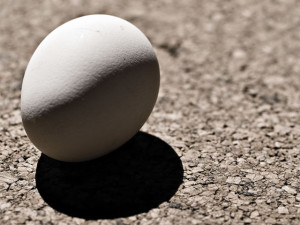 1. Excitement. Something has popped into your head–an idea, a hook, a scene. You’re positive that a terrific story will unfold around it. You sit down and commit your idea to the page. Yep. This just might work . . .
1. Excitement. Something has popped into your head–an idea, a hook, a scene. You’re positive that a terrific story will unfold around it. You sit down and commit your idea to the page. Yep. This just might work . . .
2. Fear. You realize that everything else about the story except your original idea is — oh no! — utterly invisible. What you have written so far isn’t nearly enough — but it’s impossible to know what else might be there or how you’ll ever find it. You fight an overwhelming tendency to avoid the story altogether. You almost wish you’d never started it in the first place. Failure seems like such a sweet option . . .
3. Relief. Suddenly, that Other Self from which these things originate offers a fresh scene or twist or shred of dialogue and the next bits (or, if you’re really lucky, the entire balance of the story) falls into place.
4. Intensity. Now comes the polishing. You keep reading and re-reading, noticing things that you can emphasize a bit more to heighten a mood or draw out a fresh subtlety in a character or add another sub-layer to the plot. You find mistakes that need fixing. You pore over it for hours, it’s impossible to put the thing down.
5. Over-familiarity. Ugh. You’ve read it so many times you can’t even hear the words any more. Stupid story.
6. Separation anxiety. Oh no! It’s time to let someone else read it . . .
7. Despair. How could you possibly have ever imagined that stupid story would be any good? There are so many flaws — obviously. Your characters are flat, the plot is dull, you’ve got too much narration or too much dialogue . . . readers are going to hate it.
8. Ecstasy. Hate it? Hell no — they LOVED it! This is the BEST DAY OF YOUR LIFE . . . except, except . . . what’s that tugging at the corner of your brain? Is that . . . an idea for another story . . . ?

Uh, Kirsten, which stage is also the beer stage?
I’m sure I have no idea what you’re talking about!!!